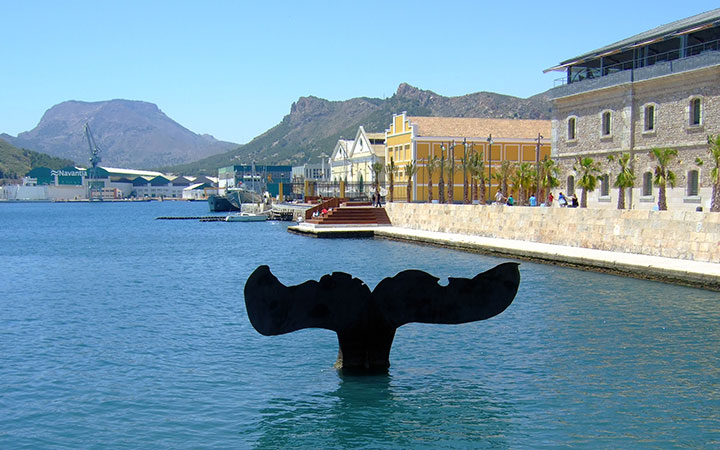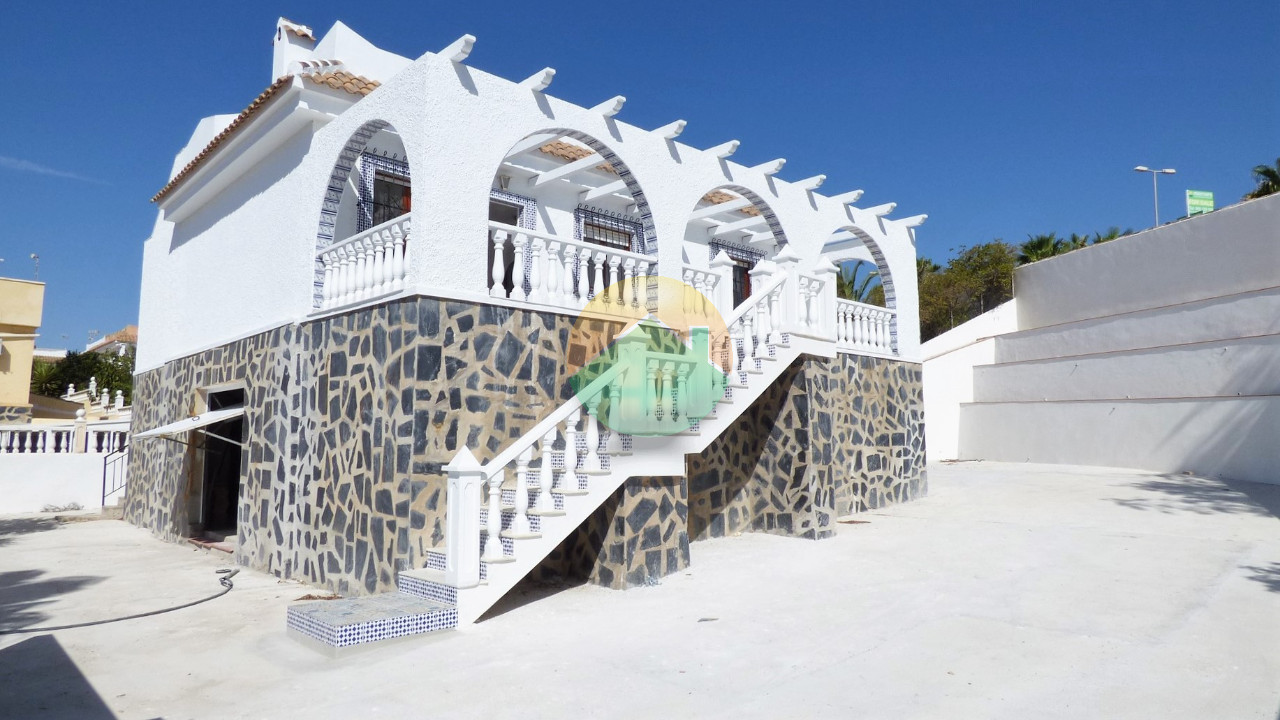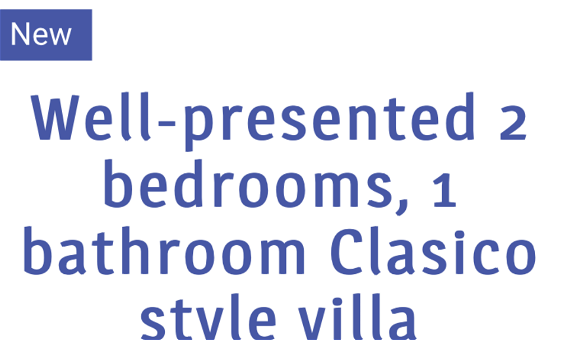Copied from a website on Community of Owners - if anyone is interested.
How does a community of owners work?
by Maria Teresa Velasco | Jan 7, 2011 | Property Law
You belong to a community
When you own a property in Spain, you almost certainly belong to a community of owners, or a residents association. There are nevertheless exceptions, if for example your property is a detached house in an isolated area. If your property is part of a community, then membership is compulsory by law.
A community of owners regulates and administrates the common areas of the estate which belong to the whole community but which are not public property. For example if the property is located in an apartment block, the community will manage and maintain common areas like the stair cases, lifts, façades and gardens. Applying same principle if you own a house in an urbanisation the community will manage the maintenance of the private roads, water and sewer connections.
From a legal point of view the community of owners is a hybrid juridical entity. It is collectively composed of all the owners but retains most of the characteristics of an independent juridical entity. This enables the community to work effectively and to hire services from companies for the community. In Spain the associations are regulated by the horizontal property law (Ley de Propiedad Horizontal) which determine how the communities of owners should be managed and how to solve conflictive situations between the residents themselves.
Horizontal property Law (Ley de propiedad horizontal)
This law refers to the rights of ownership of an individual property within a condominium and was first approved in 1960 but went through several revisions. This law establishes democratic governing processes and at the same time sets the limits for protecting the rights of individual owners towards the community. A full description of the law is outside the scope of this article but there are many translations in English available. You should take great care as many translations are just summaries and can be imprecise, only the Spanish version has any legal value.
The statutes. Rights and obligations
Apart from this law the community can establish additional statutes and rules for the community. These rules and statutes cannot go against the Horizontal property Law or any other Spanish law. The statutes can also mention the architectural elements that the individual owner can or cannot change. Most often the statutes mention elements visible from the outside, like awnings, satellite dishes or air conditioning units.
Even though it is not compulsory to register the statutes (estatutos), it is advisable. The important difference between the statutes and the internal rules (normas de regimen interior) is that changing the statutes need the unanimous vote from the owners (or a court order) where as the internal rules only need the majority vote from the owners. The statutes are there to protect the rights but also to state the general duties of the individual owners. The community regulations instead focus mainly on practical community regulations like noise after a certain hour of the evening, times for swimming pool use or handling of pets within the common areas.
The community of owners is obliged to properly maintain and execute repairs in order to ensure the safety, habitability and structural integrity of the buildings and common areas under its responsibility. This extends to civil responsibility in cases of negligence or the lack of proper maintenance, where a third party is injured which includes any residents of the community.
It is important to note that the community, in order to fulfill its maintenance and administration duties, must be funded by the individual owners. The quota is set out in the title of deeds of each property. The share of expenses can be calculated in many different ways, the most common is the surface area of the individual properties with respect to the total community surface area. There may be additional factors adjusting this calculation (for example apartments with sea view versus apartments without sea view).
The community fees can vary greatly from as little as 20 € a month for a small apartment to more than a thousand euro a month for luxury developments with concierge and private security.
It is always advisable to have a close look at the statutes and the regulations of the community before purchasing a property in order to avoid surprises, for example if the statutes allow pets or if the community fees are exorbitantly expensive.
Internal community administration and democratic process
There are 3 basic aspects regulating the community
- The owners of a community are required to designate the representatives of the community (chairman, secretaries and administrators) complying with the criteria for choosing them (election, rotation…)
- The community must hold a general meeting at least once a year for deciding budgets and to manage problems which have occurred during the previous period.
- The buyer of a resale property will assume the previous owner’s debts and unpaid bills from the community.
The democratic process and the decision-making revolve around the “general meeting of the community”. By law it must meet at least once a year as a General meeting in order to approve the accounts, agree on the budget for the following year and to deal with any pending matters or other matters raised by a board member or a community member. The law dictates the procedure for calling the meeting and notifying the owners of the agenda.
During the meetings all decisions are made by votes from the attendants. Owners that cannot attend can delegate their votes to other members of the community or another person. If you cannot be in Spain for the meeting it is recommendable to delegate your vote to a person you can trust, for example your property lawyer.
It is important to notice that the owners in debt to the community can attend the meeting but do not have the right to vote.
The Law on Horizontal Property consider three different types of vote:
- Unanimity vote
- Simple Majority vote
- 3/5 majority vote
The unanimity vote is used only for the following cases:
- Changes in the community shares assigned to the different properties.
- Changes in the statutes of the community
- Changes from communal to private elements
The 3/5 majority vote is used for the establishment or suppression of specific services like lifts, caretakers, guards or other common services of general interest, even if this means a change in the statutes. Disposing of communal elements that have no specific use in the property is also subject to the 3/5 majority vote.
All other decisions can be made by simple majority. Additionally any kind of work related to the suppression of architectonical barriers for handicapped people can be made by a simple majority vote even if it involves changes in the statutes.
Protection of minorities
The law protects minorities and individual owners in many ways. The most important way is to contest a decision taken at a general meeting in court. Three types of decision can be contested:
- Decisions contrary to the law or the statutes of the Community.
- Decisions seriously damaging Community interests to the benefit of one or more owners.
- Decisions that have been made causing great harm to any owner which break the law (for example by the owner not being notified as stated in the Horizontal Property Law).
Of course the owner taking the community to court cannot contest a decision that he has voted for favorably. Owners have 90 days after the decision has been made to contest it in court. Decisions breaking the law or contrary to the statutes can be contested within one year. For owners absent from the meeting where the decision was made, the time limits start from the notification about decisions made.
The different roles in the communityThe chairman
The chairman is the legal representative of the community and he must be one of the co-owners of the community. He is entitled to sign cheques, contracts and can carry out legal actions in the name of the community. The Horizontal property Law states that the community must compulsorily designate one. Since 1999 the Chairman can be compensated for his services, considering that this activity can be rather time consuming.
The Chairman is generally elected democratically at a general meeting but in few communities the duty is assigned by rotation. The typical term is one year. The Chairman can chose to be released from his position after the end of his term by calling an extraordinary General meeting or by placing the election of a new Chairman in the agenda of an annual general meeting.
The duties of the Chairman are quite diverse, but he cannot make important decisions without consulting the owners in a general meeting nor go against the decisions made by the members in a general meeting.
The responsibilities of the Chairman can be summarized in the following points:
- Take legal action that has been approved by a General Meeting
- Represent the Community in relation to matters concerning individual members
- Represent the Community in matters concerning third parties or companies
- Call the General Meetings
- Chair the General Meetings
The vice-chairman
In 2003 an update of the horizontal property law introduced the role of the vice chairman, this role is not specific or mandatory. The Chairman can delegate tasks to the vice-chairman in his absence.
The Administrator
The administrator is elected by a majority vote during a general meeting. The duration of the term is typically one year although this can vary. The legal responsibility of the administrator can be summarized as follows:
- Supervision and management of the whole community, property, installations and services.
- Budget proposal to be approved by the Community
- Make the necessary payments, collect money from the owners and execute the works decided on by the Community
- Be responsible for the Community accounts
- Optionally, keep the Community minute book and documents
The administrator does not have to be a member of the community and he normally receives payment for his work. In small communities the Chairman can take this role but in larger communities it is normal to contract a specialized firm.
Both the chairman and the administrator can be taken to court for any damage caused by negligence or misconduct.
The secretary
The secretary is elected in exactly the same way as the Chairman. Often this task can be taken by the president or by the administrator. His tasks can be summarised as:
- Send notifications to the owners for the General Meetings, as instructed by the Chairman (if this is not done by the administrator)
- Take the minutes of all meetings
- Send information to the members who were absent from the General Meeting and detail the decisions made during the meeting
- Keep the minute book. This is a very important document. It is a “libro de acta” with numbered pages stamped by the land registry
- Show the minute book to any owner asking to see it
- Keep track of documents and correspondence of the community
The minutes of meetings must record the following items:
- Place and time the meeting was held
- The names of the persons calling the meeting,
- The nature of the meeting (Ordinary or extraordinary)
- The participants in the meeting and their shares, if they participate as a representative for someone and if someone assisted without the right of vote
- Who chaired the meeting and when and where it was held
- The agenda that was sent out in the notification of the meeting,
- The discussion about the different points on the agenda, the main points of view expressed, and the decisions made and with what majority.
- If any member contested the legality of any decision.
The law states in article 19 that the chairman and secretary must sign the minutes within 10 days of the meeting date.
It is mandatory to send the minutes to the owners, in order to allow any of the members to contest any of the decisions made.
Conclusion
A well-run community of owners can greatly enhance the value of a property, while a poorly managed one can create many problems. If you have any questions or doubts about the workings of a community of owners do not hesitate to ask your Spanish lawyer. If you have any grievance about your community speak to your lawyer about it. In most cases it will be possible to mediate and to find an amicable solution to your problems.






 My name's Alex and this is my website all about Camposol in Spain. Register now for free to talk about General Camposol discussion and much more!
My name's Alex and this is my website all about Camposol in Spain. Register now for free to talk about General Camposol discussion and much more!















